The 7 Habits of Highly Effective People by Stephen R. Covey is a personal growth book. It is based on Covey's conviction that the manner in which we see the world is completely constructed based on our own insights. The changes that are going on, considering that, we should change ourselves, and in order to change ourselves, we should have the option to change our insights.
According to Stephen Covey, what are the habits that highly effective people possess?
The book opens with a clarification of the number of people who have accomplished a serious level of outward achievement but actually end up battling with an inward requirement for creating individual adequacy and developing solid associations with others.
Covey accepts the manner in which we see the world is totally founded on our own insights. The changes that are going on, considering that we should change ourselves and to change ourselves, we should have the option to change our discernments.
In contemplating more than 200 years of writing on the idea of "progress," Covey recognized a vital change in the way that people have characterised accomplishment over the long haul.
In prior times, the groundwork of progress settled upon character ethics (things like respectability, lowliness, devotion, moderation, boldness, equity, tolerance, industry, straightforwardness, unobtrusiveness, and the Golden Rule). In any case, beginning around the 1920s, the manner in which individuals saw a positive outcome moved to what Covey calls "character ethic" (where achievement is a component of character, public picture, perspectives, and ways of behaving).
Nowadays, individuals search for handy solutions. They see an effective individual, group, or association and inquire, "How would you get it done? Show me your procedures!" But these "alternate routes" that we search for, expecting to save time and exertion yet accomplish the ideal outcome, are essentially bandages that will yield transient arrangements. They don't address the hidden condition.
"The manner in which we see the issue is the issue," Covey composes. We should permit ourselves to go through outlook changes - - to change ourselves essentially and not simply adjust our perspectives and ways of behaving on a superficial level - - to accomplish genuine change.
That's exactly is the place where the seven habits of highly effective people succeed :
Habits 1, 2, and 3 are centred around discipline and moving from reliance to autonomy.
Habits 4, 5, and 6 are centred around creating cooperation, coordinated effort, relational abilities, and moving from autonomy to reliance.
Habits 7 is centred around consistent development and improvement and typifies the wide range of various habits.
Let’s have a look at these 7 habits that will frame a clear picture in your mind of how to function like highly effective people:-
Habit 1: Be Proactive
(It is about taking responsibility for your life)
Zero in and follow up on what you have some control over and impact rather than what you can't.
Proactive individuals perceive that they are "reaction capable." They don't fault conditions, conditions, or molding for their way of behaving. They realise they can pick their way of behaving. Receptive individuals, then again, are regularly impacted by their actual climate. They track down outside sources to fault for their way of behaving. Assuming the weather conditions are great, they feel better. On the off chance that it isn't, it influences their disposition and execution, and they fault the climate.
This multitude of outer powers goes about as boosts that we answer. Between the improvement and the reaction is our most noteworthy power-we have the opportunity to pick our reaction. Quite possibly, the main thing we pick is what we say. Our language is a decent mark of how we see ourselves.
A proactive individual proposes proactive language-I can, I will, I like, and so forth. A receptive individual proposes responsive language-I can't, I need to, if by some stroke of good luck. Receptive individuals accept they are not answerable for what they say and do-they must choose between limited options.
Proactive individuals center their endeavours around their Circle of Influence. They work on the things they can take care of the well-being, youngsters, or issues at work.
Responsive individuals center their endeavours in the Circle of Concern- things over which they have practically zero control: the public obligation, psychological oppression, or the climate. Acquiring familiarity with the areas in which we use our energies is a goliath step in becoming proactive.
Habit 2: Begin With the End in Mind
(It is based on one's imagination)
Characterise clear proportions of accomplishment and an arrangement to accomplish them.
The capacity to imagine to you what you can't at present see with your eyes. It depends on the rule that everything is made two times. There is a psychological (first) creation and a physical (second) creation. The actual creation follows the psychological, similarly to a structure that follows an outline.
In the event that you don't put forth a cognizant attempt to imagine what your identity is and what you need throughout everyday life, then you enable others and conditions to shape you and your life as a matter of course. It's tied in with interfacing again with your uniqueness and afterwards characterising the individual, moral, and moral rules inside which you can generally joyfully communicate and satisfy yourself.
Probably the ideal way to consolidate Habit 2 into your life is to foster a Personal Mission Statement. It centers around what you need to be and do. It is your arrangement for progress. It reaffirms what your identity is, places your objectives in concentration, and moves your thoughts into this present reality. Your statement of purpose makes you the head of your own life. You make your predetermination and secure the future you imagine.
Habit 3: Put First Things First
(It is an exercise of the independent will toward becoming principle-centred)
Focus on and accomplish your most significant objectives rather than continually responding to urgencies.
Habit 3 is the down to earth satisfaction of Habits 1 and 2. According to propensity 1, "You are the maker. You are in control." Habit 2 is the principal mental creation, in view of the creative mind, the capacity to imagine what you can turn into. Propensity 3 is the subsequent creation, the actual creation.
This Habit is the place where Habits 1 and 2 meet up. It happens every day of the week, second by second. It manages a large number of inquiries using time productively. However, that is not all; propensity 3 is about the existence of the executives to your motivation, values, jobs, and needs. What are "first things?" First things are those things you find of generally worth. Assuming you put priorities straight, you are coordinating and overseeing time and occasions as indicated by the individual needs you laid out in Habit 2.
Habit 4: Think Win-Win
Work together more successfully by building high-trust connections.
Think Win-Win isn't tied in with being great, nor is it a handy solution procedure. It is a person based code for human communication and joint effort.
The vast majority of us figure out how to put together our self-esteem with respect to examinations and contests. We ponder prevailing as far as another person fizzling, assuming that I win, you lose; or then again, on the off chance that you win, I lose. Life turns into a lose-lose situation. There is just such a lot of pie to go around, and assuming you get a major piece, there is less for me; it's somewhat unreasonable, and I will ensure you don't get any longer. We as a whole play the game, yet how much tomfoolery is it truly?
Shared benefit considers life to be an agreeable field, not a cutthroat one. Mutual benefit is a mood and heart that continually looks for shared benefit in every human cooperation. Shared benefit implies arrangements or arrangements that are commonly helpful and fulfilling. We both get to eat the pie, and it tastes pretty darn great!
To go for shared benefit, you must be empathic; however, you likewise must be sure. You must be thoughtful and delicate, yet you additionally must be valiant. That harmony among mental fortitude and thought is the substance of genuine development and is major to shared benefit.
Habit 5: Seek First to Understand, Then to Be Understood
Impact others by fostering a profound comprehension of their requirements and points of view.
Communication is the primary expertise throughout everyday life. You go through years figuring out how to peruse, compose, and talk. Yet, what might be said about tuning in? What preparation have you had that empowers you to tune in so you truly, profoundly comprehend another individual? Most likely none, correct?
Assuming that you're similar to many people, you most likely look for first to be perceived; you need to make yourself clear. In doing as such, you might overlook the other individual totally, imagine that you're tuning in, specifically hearing just specific pieces of the discussion or mindfully center around just the words being said, yet miss the importance completely. So for what reason does this occur?
Since many people tune in with the goal to answer, not to comprehend, you stand by listening to yourself as you plan what you will say, the inquiries you will pose, and so forth. You channel all that you hear through your background, your casing of reference. You check what you hear against your personal history and perceive how it has the right stuff. Thus, you choose rashly what the other individual means before they get done with conveying. Do any of the accompanying sounds sound natural?
You may say, "Hello, stand by a moment. I'm simply attempting to connect with the individual by drawing on my own encounters. Is that so awful?" In certain circumstances, self-portraying reactions might be fitting, for example, when someone else explicitly requests help according to your perspective or when there is an exceptionally elevated degree of confidence in the relationship.
Habit 6: Synergize
Foster creative arrangements that influence distinctions and fulfil every key partner.
To lay it out plainly, Synergy signifies "two heads are superior to one." Synergize is the propensity for innovative participation. It is cooperation, liberality, and the experience of tracking down new answers for old issues. Yet, it doesn't occur all alone. It's an interaction, and through that cycle, individuals offer all their own insight and skills of real value.
Together, they can create far superior outcomes than they could exclusively. Collaboration allows us to find things mutually as we are substantially less liable to find something without getting help from anyone else. It is the possibility that the entire thing is more noteworthy than the number of parts. One in addition to one equivalent three, or six, or sixty-and so on.
At the point when individuals start to communicate together and they're available to one another's impact, they start to acquire new knowledge. The capacity of creating new methodologies is expanded dramatically in light of contrasts.
Esteeming contrasts truly drive cooperative energy. Do you really esteem the psychological, passionate, and mental contrasts among individuals? Or then again, do you wish everybody could simply concur with you so you could generally get along? Many individuals botch consistency for solidarity and similarity for unity. A single word is exhausting! Contrasts ought to be viewed as qualities, not shortcomings. They add zing to life.
Habit 7: Sharpen the Saw
Increment inspiration, energy, and work/life balance by setting aside a few minutes for recharging exercises.
Sharpen the Saw implies saving and upgrading the best resource you have. It implies having a decent program for self-restraint in the four aspects of your life: physical, social/enthusiastic, mental, and profound.
As you restore yourself in every one of the four regions, you make development and change in your life. Hone the Saw keeps you new so you can keep on pursuing the other six routines. You increment your ability to deliver and deal with the difficulties around you. Without this recharging, the body becomes frail, the psyche mechanical, the feelings crude, the soul heartless, and the individual self-centred. Not a beautiful picture, right?
You can spoil yourself intellectually and profoundly. Or then again, you can carry on with life unmindful of your prosperity. You can encounter lively energy. Or, on the other hand, you can carry and pass up the advantages of good well-being and exercise. You can rejuvenate yourself and face another day in harmony and concordance.
As we center around restoring ourselves along with these four aspects, we should likewise look to be someone who others will look upto. We should hope to motivate others to a higher way by showing them we have confidence in them, by paying attention to them empathically, and by empowering them to be proactive.
The genuine magnificence of the 7 habits is that improvement in one propensity synergistically expands our capacity to work on the rest.












